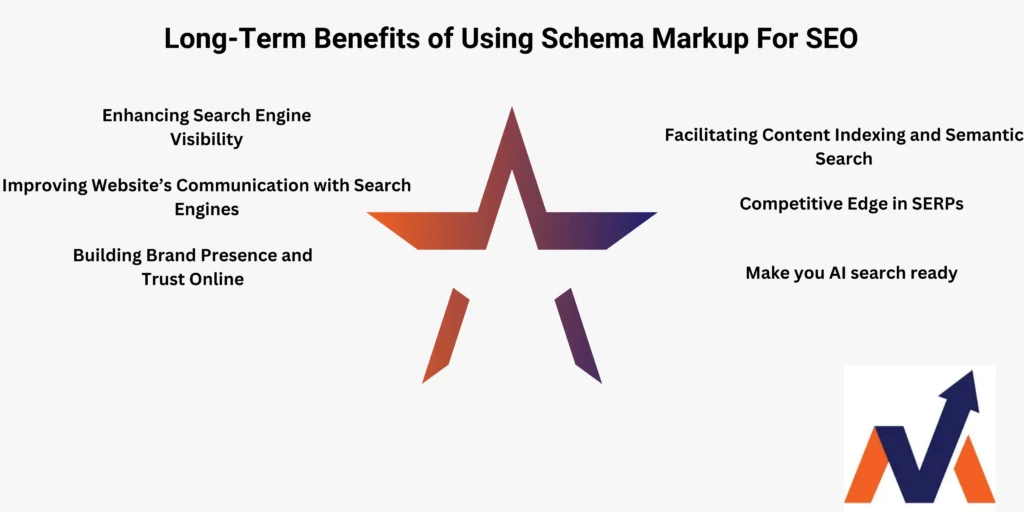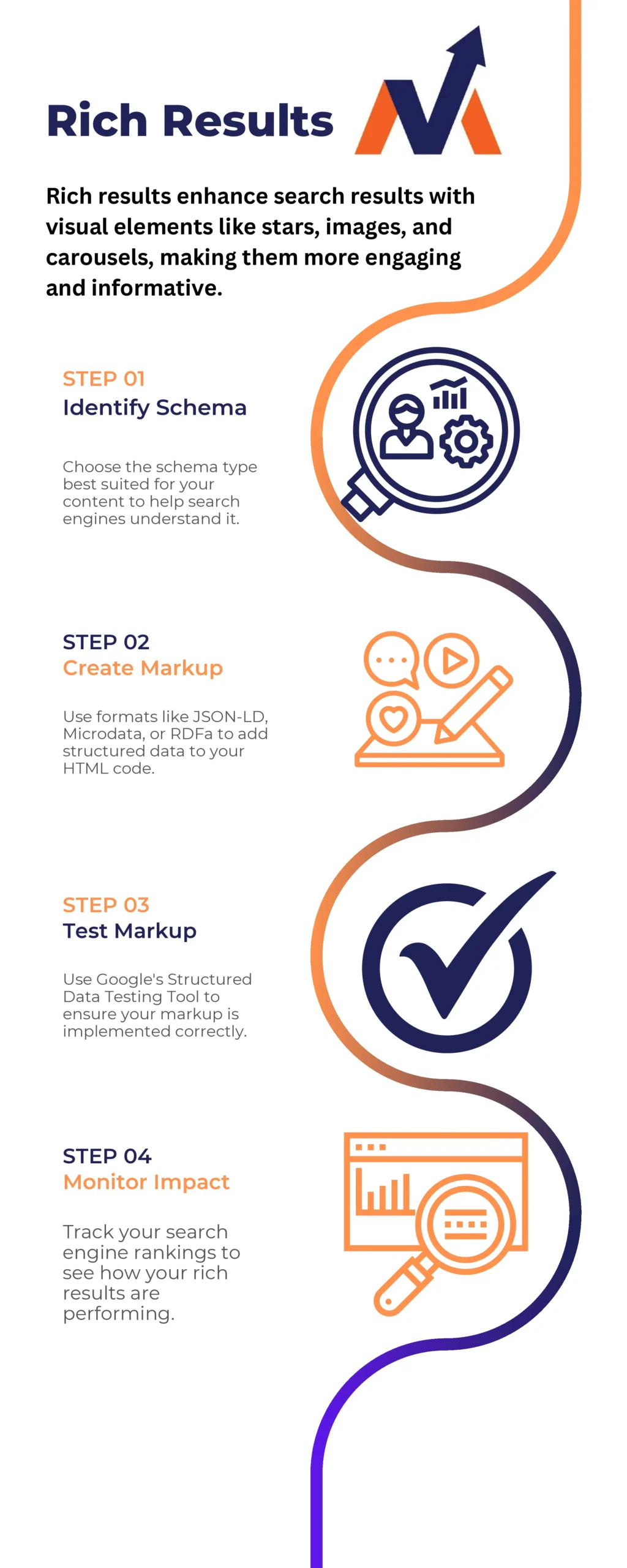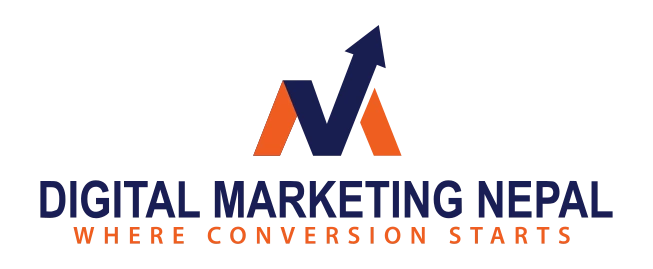You’ve just launched your dream startup, pouring countless hours into a stunning website, top-tier products, and compelling content. Despite your best efforts, your search rankings remain lackluster.
Frustrating, isn’t it? Now imagine a tool that communicates directly with search engines, makes your website irresistible to Google, and skyrockets your search visibility. That’s exactly what schema markup does. It’s not magic, but it’s pretty close.
This schema markup guide will unravel everything you need to know about schema markup, from how it works to its long-term benefits, practical applications, and actionable steps.
Whether you’re a startup or an established business, this will be your playbook to higher rankings and better visibility, especially if you’re working with a SEO expert in Nepal.
What is Schema Markup?
Schema markup is a type of structured data that you add to your website’s HTML to help search engines understand the content and context of your pages. By using schema markup, you provide additional information to search engines about your specific content types, such as products, reviews, and articles.
This data is presented in a standardized format, allowing search engines like Google to better understand your content, which is helpful for ranking.
Furthermore, schema markup is not just beneficial for search engines but also for users who are looking for specific information. When you implement schema markup on your website, you enable search engines to display more informative results, making it easier for users to find what they need.
Long-Term Benefits of Using Schema Markup for SEO
1. Enhancing Search Engine Visibility and Click-Through Rates
Implementing schema markup can significantly enhance your search engine visibility and improve click-through rates (CTR). By adding structured data to your web pages, you increase the chances of your content being featured as a rich snippet in search results.
Rich snippets typically attract more user attention due to their visually appealing format, which can include images, star ratings, and other engaging elements. This enhanced visibility can lead to higher CTR, ultimately driving more traffic to your site and boosting your overall SEO performance.
Additionally, as more users become familiar with rich snippets, they may develop a preference for clicking on these enhanced results over traditional listings. This shift in user behavior underscores the importance of using schema markup effectively.
As your CTR increases, so too will your website’s authority and trustworthiness in the eyes of search engines, further bolstering your SEO efforts in the long run.
Therefore, it is essential to prioritize adding schema markup to your website to reap these long-term benefits. An initiative digital marketing agency can be instrumental in helping you implement schema for maximum impact.
2. Improving Website’s Communication with Search Engines for Better SERP Features
Schema markup significantly improves your website’s communication with search engines, enabling better indexing and categorization of your content. By clearly defining the type of content on your pages using structured data, search engines can more easily interpret the context and relevance of your information.
This improved communication can lead to enhanced search engine results page (SERP) features, such as knowledge panels, carousels, and rich snippets, all of which can provide your website with greater exposure and authority.
Additionally, as search engines continue to evolve, they increasingly rely on structured data to enhance their algorithms and improve user experience. By implementing schema markup, you position your website at the forefront of these advancements, ensuring that your content remains competitive in a rapidly changing digital landscape.
This proactive approach to SEO not only helps you stay relevant but also fosters a stronger relationship with search engines, ultimately leading to increased organic traffic and better overall performance. SEO experts in Nepal can provide valuable guidance on how to best utilize schema for your specific target audience.
3. Building Brand Presence and Trust Online
One of the key benefits of utilizing schema markup is its ability to build brand presence and trust online. When your content is enriched with structured data, search engines are more likely to display your website in prominent positions within search results.
This visibility not only increases brand awareness but also fosters trust among users, as they perceive rich snippets and other enhanced features as indicators of quality and legitimacy. Consequently, users are more likely to click on your listings, engage with your content, and convert into customers.
Moreover, as your brand becomes more recognizable through consistent schema implementation, you establish a reputation for providing valuable and trustworthy information. This reputation can translate into long-term customer loyalty and repeat business, as users are more inclined to return to a brand they trust.
By investing time and effort into adding schema markup to your website, you are not only optimizing for search engines but also cultivating a strong brand presence that resonates with your audience.

4. Facilitating Content Indexing and Semantic Search
Schema markup plays a critical role in facilitating content indexing and enhancing semantic search capabilities. Search engines are continuously refining their algorithms to better understand the meaning and context behind content.
By utilizing structured data, you provide search engines with explicit information regarding your content, which aids in more accurate indexing. This is particularly important in the age of semantic search, where search engines aim to comprehend user intent and deliver relevant results.
Furthermore, the implementation of schema markup ensures that your content is categorized correctly within search engines, allowing users to find exactly what they are searching for with minimal effort.
This streamlined indexing process not only enhances user experience but also increases the likelihood of your content ranking higher in search results. By embracing schema markup as part of your SEO strategy, you are positioning your website to thrive in an increasingly competitive online environment.
5. Gaining a Competitive Edge in SERPs
In the competitive landscape of search engine results pages (SERPs), schema markup provides a distinct advantage that can set your website apart from others. By implementing structured data, you enhance your chances of gaining visibility through rich snippets and other engaging SERP features that capture user attention.
This competitive edge is crucial, especially in crowded niches where multiple businesses vie for the same audience. When users see visually appealing listings that stand out from traditional search results, they are more likely to click through to your website.
Additionally, the benefits of schema markup extend beyond just aesthetics. The enhanced visibility that comes with rich snippets can lead to increased organic traffic, improved click-through rates, and ultimately higher conversion rates. As your website gains traction in SERPs, you establish a stronger online presence that differentiates your brand from competitors.
This strategic advantage reinforces the importance of leveraging schema markup as an integral part of your SEO efforts, ensuring that your website remains relevant and competitive in the evolving digital landscape.
6. Making Your Website AI Search-Ready
As search engines increasingly incorporate artificial intelligence (AI) into their algorithms, schema markup becomes essential for ensuring your website is AI search-ready.
With AI-driven search engines striving to provide users with the most relevant and accurate results, structured data offers a way to communicate the specifics of your content effectively.
By using schema markup, you give search engines the context they need to understand your content better, which aligns with the goals of AI technology.
Moreover, as AI continues to evolve, it will rely more heavily on structured data to enhance the user experience. Websites that implement schema markup will be better positioned to adapt to these changes and take advantage of new opportunities in search.
By prioritizing schema implementation today, you not only improve your current SEO standing but also future-proof your website against the rapid advancements in search technology.
This forward-thinking approach is crucial for maintaining a competitive edge in the digital landscape.
Different Structured Data Formats
There are several different structured data formats available for implementing schema markup on your website. Each format has its own unique features and advantages, allowing website owners to choose the one that best fits their needs. The most commonly used formats include JSON-LD, Microdata, and RDFa.
1. JSON-LD:
JSON-LD (JavaScript Object Notation for Linked Data) is a popular structured data format that provides a simple way to add schema markup to your website.
This format is particularly favored by developers due to its ease of use and clear syntax. JSON-LD is implemented separately from the HTML content, meaning it does not interfere with the existing structure of your web page.
This separation allows for more straightforward updates and modifications, making it a practical choice for those looking to enhance their SEO efforts through structured data.
JSON-LD is also recognized and supported by major search engines like Google, Bing, and Yahoo, which further solidifies its status as a reliable structured data format.
By using JSON-LD, you can implement various schema types, such as product schema, organization schema, and article schema, to provide search engines with the necessary context about your content. This format not only simplifies the implementation process but also ensures that your website is well-optimized for search engine visibility and rich snippets.
2. Microdata:
Microdata is another structured data format that allows you to embed schema markup directly within your HTML content. Unlike JSON-LD, Microdata requires you to annotate specific elements of your web page, providing a more integrated approach to structured data implementation.
This format is particularly useful for those who prefer to keep their markup closely tied to their content, as it allows for more granular control over how information is presented to search engines.
However, implementing Microdata can be more complex than using JSON-LD, as it requires a good understanding of HTML and the specific schema vocabulary.
Despite this complexity, Microdata is still widely used and supported by search engines, making it a viable option for adding structured data to your website. By utilizing Microdata effectively, you can enhance your SEO strategy and improve your chances of appearing in rich snippets and other SERP features, ultimately driving more traffic to your site.
3. RDFa:
RDFa (Resource Description Framework in Attributes) is another structured data format that enables you to embed schema markup within your HTML. Similar to Microdata, RDFa allows for in-line annotations, providing a way to enhance the semantic meaning of your content.
This format is particularly beneficial for websites that require a high level of detail and specificity in their structured data, as it allows for a more comprehensive representation of complex relationships between different entities.
While RDFa can be more challenging to implement due to its intricate syntax, it offers a robust solution for those looking to leverage the full potential of structured data.
Like other formats, RDFa is recognized by major search engines, ensuring that your content is indexed accurately.
By incorporating RDFa into your schema markup strategy, you can improve the search engine’s understanding of your content, ultimately enhancing your SEO efforts and driving more organic traffic to your site.
4. Mixed:
Mixed structured data formats involve using more than one type of schema markup format on your website. For example, you might choose to implement JSON-LD for most of your structured data while incorporating Microdata or RDFa for specific elements that require more detailed annotations.
This mixed approach allows you to take advantage of the strengths of each format, enabling you to customize your structured data implementation to best suit your website’s needs.
Using a mixed approach can be particularly beneficial for larger websites with diverse content types, as it provides the flexibility to optimize each section based on its unique requirements.
However, it is essential to ensure that the different formats do not conflict with one another, as this can lead to confusion for search engines. By carefully managing your mixed structured data implementation, you can enhance the effectiveness of your SEO strategy and improve your website’s performance in search results.
Common and Popular Schema Markups
1. Product Schema:
Product schema is a specific type of schema markup designed for e-commerce websites looking to enhance their product listings in search results. By implementing product schema, you provide search engines with detailed information about your products, including price, availability, and customer reviews.
This structured data enables search engines to display rich snippets that show key product information directly in search results, making it easier for potential customers to find and evaluate your offerings.
2. Review Schema:
Review schema is another important type of schema markup that allows you to showcase user-generated reviews and ratings for your products or services. By implementing a review schema, search engines can display star ratings, review counts, and other relevant information in search results.
This additional data not only enhances the appearance of your listings but also builds trust and credibility with potential customers.
3. Organization Schema:
Organization schema is a type of schema markup that provides search engines with essential information about your business or organization.
This structured data includes details such as your organization’s name, logo, contact information, and social media profiles. By implementing organization schema, you help search engines understand your brand and establish a strong online presence.
4. Recipe Schema:
Recipe schema is specifically designed for food-related websites looking to enhance their recipe listings in search results. By implementing a recipe schema, you provide search engines with detailed information about your recipes, including ingredients, cooking times, and nutritional information.
This structured data allows search engines to display rich snippets that showcase key recipe details, making it easier for users to find and engage with your content.
5. Event Schema:
Event schema is a type of schema markup designed for websites promoting events, such as concerts, conferences, or festivals. By implementing event schema, you provide search engines with essential details about your events, including dates, locations, ticket prices, and descriptions.
This structured data enables search engines to display rich snippets that help users find and learn more about your events quickly.

6. Video Schema:
Video schema is a type of schema markup designed to enhance the visibility of video content in search results. By implementing video schema, you can provide search engines with key information about your videos, such as titles, descriptions, and thumbnail images.
This structured data enables search engines to display rich snippets that showcase your video content, making it easier for users to find and engage with your videos.
7. Article Schema:
Article schema is specifically designed for websites that publish articles or blog posts. By implementing article schema, you provide search engines with detailed information about your content, including titles, authors, publication dates, and descriptions.
This structured data allows search engines to display rich snippets that showcase key article details, making it easier for users to find and engage with your written content.
8. FAQ Schema:
FAQ schema is a type of schema markup that allows you to present frequently asked questions and their corresponding answers in a structured format. By implementing FAQ schema, you provide search engines with clear information about the questions users commonly ask regarding your products or services.
This structured data enables search engines to display rich snippets that showcase your FAQs directly in search results, making it easier for users to find answers to their questions.
Types of Schema Markup Suitable for Your Business
1. Identifying the rich results
When it comes to schema markup, there are different types you can use depending on the nature of your business. For instance, local businesses can benefit significantly from local business schema, allowing them to show up in search results with location details and contact information.
Similarly, if you’re selling products, the product schema is a game-changer. Ultimately, selecting the right schema type is crucial for boosting your SEO and attracting the right audience. The experienced team of initiative digital marketing agency can guide you in choosing the most effective schema types for your business.
2. Testing and Validating Your Schema Markup
After implementing schema markup, it’s crucial to test and validate it to ensure it’s functioning correctly. Using a validation tool allows you to check if your structured data is error-free and optimized for search engines.
Validating your schema markup ensures that search engines can effectively read and display your content in rich snippets, which is vital for getting more visibility in search results.
Testing your schema markup also helps you confirm that the information displayed in search results accurately reflects your content. It’s not just about adding schema markup; it’s about ensuring it communicates effectively with search engines.
When you validate your schema, you might discover areas for improvement or additional types of schema that could enhance your content’s visibility. Regularly testing and validating your schema markup is an ongoing process that pays off in the long run.
Tools to Test Schema Markup
There are several tools to effectively test schema markup:
1. Google’s Structured Data Testing Tool:
This tool allows you to check whether your schema markup is implemented correctly. By pasting your code into the testing tool or entering a URL, you can see how Google interprets it and identify any errors or warnings that need addressing.
This process is crucial for ensuring that your structured data is accurate and effective in enhancing your search result visibility.
2. Rich Results Test:
This tool focuses specifically on rich snippets. This tool allows you to validate your structured data to ensure it qualifies for display as rich results in SERPs.
By testing your schema markup here, you can ascertain whether your content will appear in enhanced formats, such as carousels or featured snippets, which can significantly boost your visibility and engagement.
3. Schema Markup Validator:
This tool allows you to validate your structured data markup against the Schema.org specifications. This tool is essential for ensuring that your schema markup adheres to the latest standards and best practices.
By using the validator, you can identify any discrepancies or issues with your implementation, ensuring that search engines can effectively parse your data.
Steps to Implement Rich Results to Your HTML
- Identify the most relevant type of schema markup suitable for your content. Consider consulting with SEO services in Nepal for expert guidance.
- Create and add schema markup to your website using JSON-LD (recommended), Microdata, or RDFa. Utilize online schema markup generators to streamline the process.
- Test the effectiveness of your schema markup using Google’s Structured Data Testing Tool.
- Monitor your search engine ranking after implementing schema markup to track its impact and make any necessary adjustments.

Sources for Staying Updated with Schema.org Changes
- Refer to the official Schema.org website for the latest updates on schema types and guidelines.
- Subscribe to relevant SEO blogs and forums, such as Moz, Search Engine Land, and Google’s Search Central Blog, for insights into best practices and new developments in structured data.
- Join online communities or social media groups focused on SEO to share experiences and learn from other professionals implementing schema markup.
Errors You Might Face During Implementation of Structured Data and Their Solutions
- Missing Required Properties: This error can prevent search engines from recognizing your schema. Ensure you include all required properties for the schema type you are using by checking the schema documentation.
- Incorrectly Formatted Schema Code: Typos or incorrect nesting of properties can cause this error. Utilize validation tools to identify and rectify these issues.
Metrics to Ensure Your Rich Results are Effective
- Click-Through Rate (CTR): Monitor how often users click on your rich snippet when it is displayed in search results. A higher CTR indicates compelling and relevant schema markup.
- Conversion Rate: Track how many visitors complete a desired action after clicking through from your rich snippet.
- Impressions: Monitor how often your structured data appears in search results to understand its visibility.
- A/B Testing: Compare different schema types to determine which yields the best performance.
Conclusion: Is Schema Markup Worth the Effort?
Investing time and resources into schema markup is undoubtedly worthwhile for boosting your SEO. Schema markup enhances visibility in search results, improves click-through rates, and helps search engines understand your content better.
While the initial setup might require some learning and validation, the long-term advantages far outweigh the challenges. By regularly updating your schema and staying informed about the latest changes, you can maintain a competitive edge in your SEO strategy.
If you haven’t yet implemented schema markup on your website, now is the time to start. Embrace this ultimate guide to schema markup, and watch as your SEO efforts flourish with increased traffic and engagement!





0 Comments